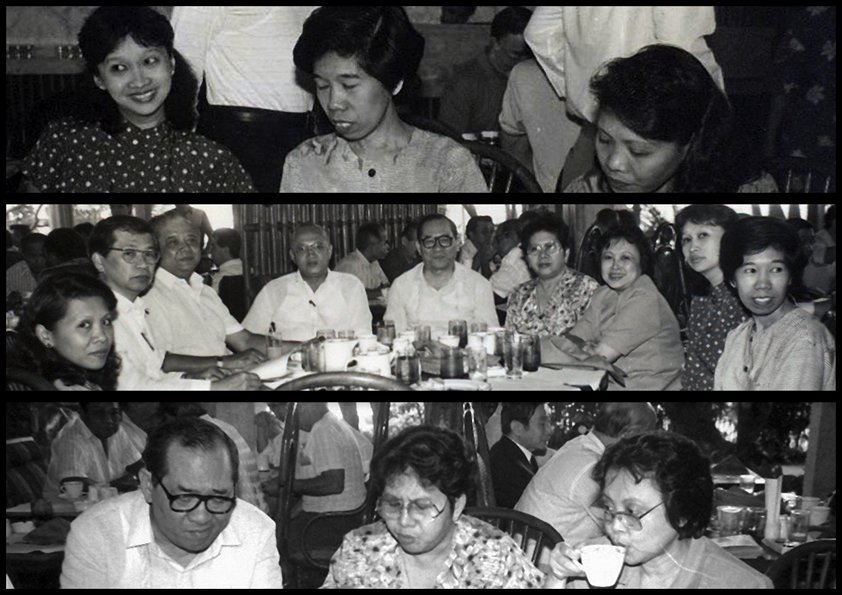Sherrie Vergara, MD and Julienne Ramos, MD

The Philippine Thyroid Association assembled last January 26, at the Crowne Plaza, Ortigas for the 39th annual convention. Speakers from different fields in medicine convened to discuss the latest updates in Thyroid Risk Evaluation and Assessment in Distinct Settings (ThREADS).
Jump to the article:
- Optimizing Radioactive Iodine Therapy in the Outpatient Setting
- Management of Locally Invasive Thyroid Cancer
- Updated 2023 Bethesda Classification of Thyroid Cytopathology
- Postoperative Hypocalcemia and Voice Dysfunction
- Pre-employment Risk Assessment for Workers with Thyroid Dysfunction
- Pediatric and Adolescent Graves’ Disease
- A Primer on the DOH-CPG on Hyperthyroidism
- Call to Action: Revisiting ASIN Law involving various stakeholders
Optimizing Radioactive Iodine Therapy in the Outpatient Setting
Speakers: Dr. Wenceslao Llauderes and Dr. Ruben Ogbac
The discussion highlighted the development in radioactive iodine therapy that can now be done in an out-patient setting even at higher doses i.e., 140mCi. The pandemic was instrumental in the adaptation made so that radioactive iodine therapy can still be given in a limited hospital resource setting while ensuring radiation safety precautions and monitoring.
Management of Locally Invasive Thyroid Cancer
Speaker: Dr. Kyung Tae
The primary mode of treatment remains the surgical eradication of cancer tissues with safe margins. In advanced cases, however, aggressive resection of extrathyroidal tissues may be necessary. Dr. Kyung Tae discussed the recommendations to perform routine preoperative evaluation of vocal fold movements and laryngeal structures and pre-operative imaging with ultrasonography, CT, or MRI in cases of locally invasive DTC. The optimal extent of surgery in this population remains a topic for debate, and Dr. Tae was able to enlighten his audience regarding surgical recommendations. Other recommendations discussed were nerve-preserving procedures can be attempted with RLN invasion while vocal fold movement in retained, and that the RLN may be resected if with RLN invasion and vocal fold palsy.
Updated 2023 Bethesda Classification of Thyroid Cytopathology
Speaker: Dr. Rolando Lopez
Dr. Lopez provided an overview and changes in the updated Bethesda classification, namely the simplification of the diagnostic categories as follows: (i) non-diagnostic, (ii) benign, (iii) atypia of undetermined significance; (iv) follicular neoplasm; (v) suspicious for malignancy; and (vi) malignant. This updated version is a simplified version, with corresponding risks of malignancy, and recommended additional testing that can be done, such as molecular testing, repeat FNA, etc.
Postoperative Hypocalcemia and Voice Dysfunction
Speakers: Dr. Lizette Lopez and Dr. William Lim
Post-operative hypocalcemia remains the most common complication of thyroid surgery, and yet it’s prevalence in various sources vary greatly. Dr. Lopez discussed that this may be due to multiple factors – from gender, magnesium levels, vitamin D levels, and of course hypoparathyroidism. A standard manner of monitoring calcium post-operatively has yet to be established, as well as recommendations for preventing and/or correcting hypocalcemia after thyroid surgery. Multiple studies were discussed, including meta-analysis on risk factors for hypocalcemia, and prospective studies on pre-operative vs post-operative supplementation with calcium with or without vitamin D. While results for pre-operative treatment are promising, further studies are necessary.
Pre-employment Risk Assessment for Workers with Thyroid Dysfunction
Speakers: Dr. Rommel Punongbayan, Dr. Celeste Ong-Ramos, Dr. Irene Bandong
Moderator: Dr. April Melody Abcede
Medical services of overseas workers especially among seafarers are limited especially aboard the ship. Occupational safety and guidelines for work clearances were detailed in example cases scenarios. Fitness criteria for medication and therapy for both hypothyroidism and hyperthyroidism were enumerated which entails considerations to the need for continuous medical monitoring, frequency of dose adjustments and medications effects on the performance of routine and emergency duties.
Pediatric and Adolescent Graves’ Disease
Speakers: Dr. Catherine Pangilinan-Vasquez and Dr. Emerita Barrenechea
Moderator: Dr. Frances Estrada
The discussion provided emphasis on the dose and frequency of therapy, minimum age of therapy initiation, consequences and effects as well as the need for careful monitoring in the pediatric population with Graves’ disease. Evidence on the risk of malignancy and fertility problems when given radioactive iodine therapy among pediatric patients were also discussed.
A Primer on the DOH-CPG on Hyperthyroidism
Speakers: Dr. Pepito dela Pena and Dr. Elaine Cunanan
Moderator: Dr. Irene Bandong
In the commitment in advancing the standard of care and strengthening our primary care services, the launching of the CPG on Hyperthyroidism will pave way to a better evaluation and streamlined management of hyperthyroidism. The recommendations provided evidence-based and simplified algorithm in the diagnosis and management of hyperthyroidism that are easily understandable by general clinicians.
Call to Action: Revisiting ASIN Law involving various stakeholders
Speakers: Dr. Teofilo San Luis, Mr. Gerard Khong Hun and Mr. Sergio Ortiz Luis, Jr.
Moderator: Dr. Jeremyjones Robles
Different initiatives in iodine fortification and supplementation of food ingredients and products to eliminate iodine deficiency disorders were reviewed. Practical way of getting sufficient iodine in the Filipino diet were encouraged.











